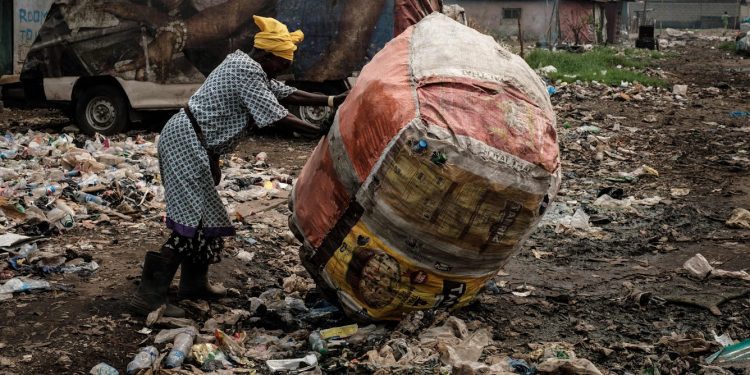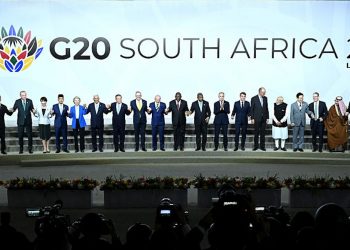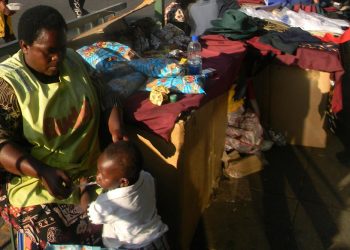Plastic waste in Nigeria presents a dual challenge: cleaning up environmental pollution, and tapping into its economic potential.
Many countries worldwide face similar challenges. India, for one, has chosen policies that give producers of plastic the responsibility to manage their waste. Rwanda has banned single-use plastic and promoted recycling initiatives led by communities.
These approaches show it’s possible to address plastic waste issues while fostering economic opportunities.
Read more:
Nigeria’s plastic ban: why it’s good and how it can work
In Nigeria, informal collectors of plastic bottle waste are central to achieving both of these goals. They turn waste into monetary value.
Previous research has highlighted the environmental and economic benefits of collecting plastic bottle waste. There’s been less attention on what shapes perceptions of waste collection as a business, particularly in Nigeria.
This article explores that gap, looking at the socio-cultural, economic and environmental influences on those perceptions.
I am a researcher in the areas of plastic waste management, environmental governance and sustainable development. My work includes studying homes made from recycled plastic bottles in sustainable community-based housing projects.
Here I’ll be drawing from an exploratory survey conducted in the Ijebu area of Ogun State, Nigeria. Using a questionnaire, we surveyed 86 participants who had at least five years of experience in the plastic waste industry.
The study identified factors like education, family size, religion, gender, age, and economic dynamics as relevant to participation in the business of plastic bottle waste collection.
Understanding these influences might help the government to target policies.
Read more:
Nigeria is the world’s 2nd biggest plastic polluter: expert insights into the crisis
Education level and information
Our study found that participants with higher education levels better understood the economic benefits of plastic waste collection as a systematic form of business. The less educated participants viewed waste collection more as a hand-to-mouth way of earning a living.
Education programmes built into waste management campaigns could improve recognition of waste collection as a structured and profitable business opportunity and develop a business-like culture among the collectors.
Parenthood, family size and financial obligations
Family size was a factor affecting perceptions of plastic bottle waste collection as a business. People with large families saw waste collection as a feasible way to provide food, housing, education and other essentials.
However, the association of waste collection with income instability highlights the need to formalise and stabilise the sector. Waste collection must be made into a sustainable and reliable business model.
Religion and cultural norms
Religion and cultural beliefs emerged as influences from our survey. This was evident in the responses of people who followed African traditional religions and Islam.
These respondents viewed waste collection as financially feasible, aligning with religious teachings that emphasise resource management and stewardship. For example, Islamic teachings on israf (avoiding wastefulness) and zakat (charity) promote efficient resource use and economic activities that benefit communities.
Similarly, African traditional religion often emphasises communal responsibility and the sustainable use of resources. These religious principles underscore the cultural acceptance of waste collection as both a practical and a morally guided economic activity.
Other cultural norms, such as the value placed on communal responsibility and cooperation, also influenced attitudes towards waste collection. In communities with a strong tradition of collective action, where unity and mutual support are highly valued, waste collection is often viewed as a collaborative effort.
These cultural norms reinforce the idea that waste collection is not just an individual task, but a collective duty that benefits the entire community.
Read more:
Informal waste management in Lagos is big business: policies need to support the trade
Gender dynamics
Gender plays a role in perception and practice in waste collection. Our survey found that male participants were more likely than female participants to perceive this activity as a business.
As constrained as they are by lack of access to resources, women are involved in separating and marketing reusable items. Measures like microfinance could increase women’s engagement and business opportunities.
This would empower women and make waste collection a more inclusive and sustainable business.
Age and desire to be an entrepreneur
Perceptions were influenced by age in our study. Younger individuals, up to 14 years old, viewed plastic bottle waste collection as a gateway to employment. Adults aged 33-38 used their experience to get better returns on the business.
This age-based distinction suggests that different stages of life bring unique motivations and approaches to waste collection.
Policy actions that support entrepreneurship at various life stages can promote long-term engagement in the industry. This will help formalise waste collection as a sustainable and profitable business.
Economic and social factors
Income opportunities affected participants’ experiences more than social factors. Oftentimes, this determined how long they stayed in the business. Those earning more were likelier to reinvest and grow, while lower earnings often led to disengagement or exit. This highlights the importance of financial incentives in shaping waste collection practices.
Social connections also play a role in fostering collaboration. It facilitates teamwork and the exchange of ideas, and creates a sense of shared purpose and collective outcomes among participants.
Strengthening these economic and social bonds can formalise plastic bottle waste collection, making it a more efficient and profitable business.
Read more:
Waste disposal in Nigeria is a mess: how Lagos can take the lead in sorting and recycling
Looking ahead
The study has significant application to Nigeria’s waste management industry. Adding education programmes into waste management programmes will improve people’s business skills.
Well-coordinated intervention strategies can remove cultural and gender-specific barriers. For instance, cooperatives and microfinance may make waste collection more financially appealing.
Strategies can also draw on cultural norms to increase community acceptance of waste collection and make it more inclusive.
Samuel Oludare Awobona, a doctoral student at Osun State University, Osogbo, Nigeria, contributed to this research.
The authors do not work for, consult, own shares in or receive funding from any company or organisation that would benefit from this article, and have disclosed no relevant affiliations beyond their academic appointment.
















